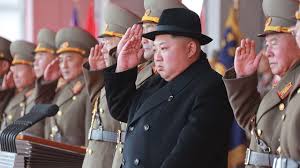Tragic Helicopter Crash Claims Lives of 2 Government Ministers in Ghana
Tragedy Strikes Ghana as 2 Government Ministers Die in Helicopter Crash
In a devastating turn of events, two high-ranking government ministers in Ghana have tragically lost their lives in a helicopter crash. The accident has sent shockwaves through the nation, leading to expressions of grief and disbelief from citizens, political figures, and world leaders alike. The ministers, who were key figures in the country’s governance, were reportedly on a mission to carry out official duties when their helicopter went down.
The helicopter, a state-of-the-art aircraft used by government officials for rapid transit across the country, crashed under unclear circumstances. Although the exact cause of the crash is still under investigation, preliminary reports suggest that weather conditions may have played a role, with strong winds and poor visibility contributing to the disaster. It is unclear whether mechanical failure was involved, but authorities are focusing their efforts on determining the root cause to prevent future incidents of this nature.
Impact on the Nation
The loss of the two ministers has left Ghana in mourning, with the government and the public expressing deep sorrow and shock. These ministers, both highly respected in their respective roles, were instrumental in shaping policies that aimed to improve infrastructure, education, and healthcare in Ghana. Their sudden and untimely deaths have created a vacuum in leadership, and their absence will be felt not only by their families and close colleagues but also by the citizens they served.
The helicopter crash has raised critical questions regarding the safety protocols for high-profile government travel. While such incidents are rare, they highlight the risks involved in transporting key government figures via air. The Ghanaian government, along with aviation experts, will likely undertake a thorough review of existing safety measures to ensure that such a tragedy does not occur again.
The Ministers’ Contributions
The ministers who lost their lives were not only political figures but also individuals who played an essential role in Ghana’s development over the past few years. Their policies were pivotal in pushing forward initiatives that had long-lasting impacts on the country’s infrastructure and socioeconomic landscape.
One of the ministers was particularly focused on national development and urbanization. Through innovative policy-making, they aimed to enhance the country’s infrastructure, including roads, schools, and healthcare facilities. The other minister was instrumental in advancing educational reforms, emphasizing skill development, vocational training, and expanding access to quality education for children across Ghana. Their dedication to public service had garnered them widespread admiration both at home and abroad.
In addition to their domestic contributions, the ministers were key figures in Ghana’s foreign diplomacy, advocating for stronger regional ties within West Africa and promoting Ghana as an investment hub. Their efforts contributed to a more positive image of the nation in the global arena, which was only beginning to flourish in recent years.
Official Reactions and Condolences
The crash has elicited a wave of condolences from both within and outside of Ghana. President Nana Addo Dankwa Akufo-Addo expressed his deep sorrow and pledged full support to the families of the victims. In his official statement, the President emphasized the ministers’ commitment to public service and their tireless work for the nation. He also extended condolences to the citizens of Ghana, noting that this was a tragic day for the country.
World leaders, including those from neighboring countries in West Africa, have also offered their heartfelt condolences. The international community has recognized the immense contributions of the ministers to regional stability and development. Ghana’s reputation as a beacon of democracy and progress in West Africa has also been highlighted in the wake of the tragedy.
A Call for Action
This heartbreaking incident serves as a stark reminder of the dangers associated with air travel, particularly when it involves high-profile figures in government. While air travel is often the most efficient means of moving between distant regions, it is critical that safety measures be rigorously enforced, and that both the public and the authorities are aware of potential risks. With the recent crash, the government of Ghana will likely re-evaluate existing aviation standards for government travel, looking into options such as safer aircraft, better-trained pilots, and improved emergency response plans.
Moreover, the crash highlights the need for stronger contingency plans to deal with such tragedies. The immediate and long-term impact of losing key ministers can destabilize important political processes and may delay key policy initiatives. It is imperative that the country now focuses on leadership continuity and stability in order to prevent any setbacks in national development.
The Need for Stronger Governance and Aviation Safety
Beyond the immediate emotional toll, the tragedy raises pertinent questions about the safety of air transport for government officials, the risks that come with rapid travel across the country, and the mechanisms in place to ensure the safety of those in high-profile positions. Ghana must take this moment as an opportunity to reassess its aviation safety protocols and ensure that preventive measures are strengthened to avoid future mishaps. A thorough investigation will hopefully provide insight into what went wrong and guide reforms moving forward.
Additionally, the tragic loss underscores the broader importance of good governance and leadership in times of crisis. The sudden loss of key leaders can create political instability, especially in nations with fragile governance structures. It is essential that Ghana, as well as other nations, develop comprehensive succession plans that can ensure continuity of leadership in the event of unexpected occurrences.
Conclusion
In the wake of this tragic helicopter crash, the people of Ghana have lost two dedicated and influential ministers who were working tirelessly for the country’s future. Their loss is not just felt by their families but by the nation as a whole. However, this heartbreaking incident provides an opportunity for the country to reflect on its aviation safety protocols and governance strategies. By addressing the flaws that contributed to this disaster, Ghana can work toward preventing similar incidents in the future, ensuring that its leaders and citizens remain safe as they continue to push for national progress.
While the emotional scars of this tragedy will take time to heal, it is essential that Ghana rises above this moment of grief, honoring the ministers’ legacies by continuing their work and improving the systems that are crucial to the country’s future.
For more news: https://africaciviclens.com/
External Links: https://www.bbc.com/news/articles/cp8zjxwgj9jo




